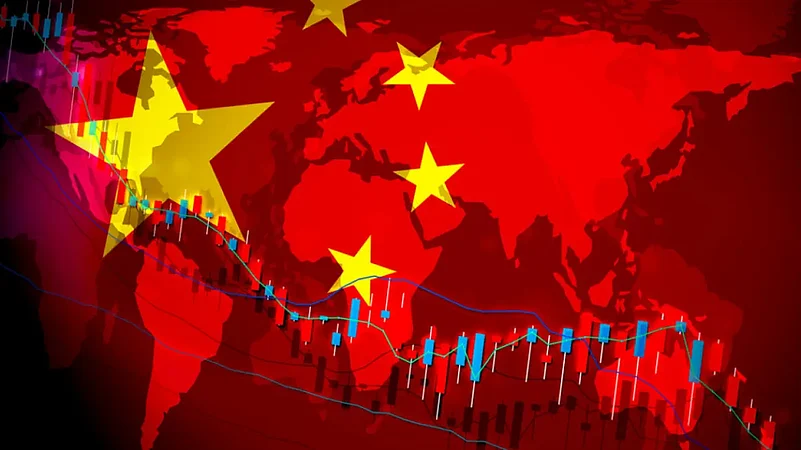The International Monetary Fund (IMF) has revised its growth projections for China in 2023 and 2024 downwards, attributing this adjustment to a decelerating recovery and highlighting vulnerabilities in the country's real estate sector.
According to the latest regional economic outlook report released on Wednesday, the IMF has lowered its growth forecasts for China. The world's second-largest economy is now projected to grow by 5% this year and 4.2% in the following year. These figures represent a decrease from the IMF's earlier April forecast of 5.2% and 4.5%, respectively.
"In China, the recovery is losing steam, with manufacturing purchasing managers' indexes entering contracting territory from April to August and conditions in the real estate sector weakening further," the report stated.
The report projected that a prolonged housing market correction in China would in the near-term "trigger greater financial stress among property developers and larger asset quality deterioration".
The potential consequence of this could lead to a 1.6% reduction in China's gross domestic product (GDP) compared to the baseline by 2025, and a 0.6% decline in global GDP relative to the baseline, as per the report.
The IMF's 2023 assessment for Asia and the Pacific appeared more optimistic, labeling it as "the most dynamic region this year."
The agency upheld its prior growth forecast for the region, remaining at 4.6% for 2023. It stated that economic activity in the region was set to account for approximately two-thirds of worldwide growth this year.
While growth in Asia and the Pacific region is anticipated to decelerate to 4.2% next year. The IMF foresees a further reduction to 3.9% in the medium term, marking the lowest growth rate in the past two decades, except for 2020. This slower growth is primarily attributed to China's structural slowdown and diminished productivity growth in several other economies, which collectively place a burden on the region.
In Asia, a noteworthy aspect is the disinflation trend, and it is anticipated that the region, excluding Japan, will align with their respective central bank inflation targets by the end of the upcoming year.
"This puts Asia ahead of the rest of the world, which, in general, will not see inflation returning to target until at least 2025," it said.
Central banks in the region, however, should guard against easing monetary policy prematurely, the IMF added.
"Central banks should carry through with policies to ensure that inflation is durably at appropriate targets. As tight monetary conditions can place strains on financial stability, strengthening financial supervision, vigilant monitoring of systemic risks, and modernizing resolution frameworks are critical."
































